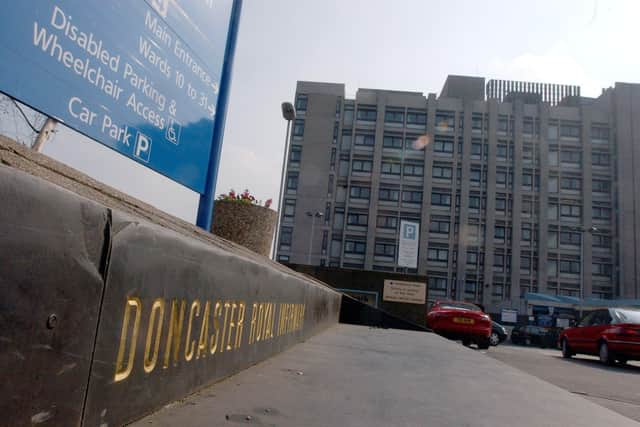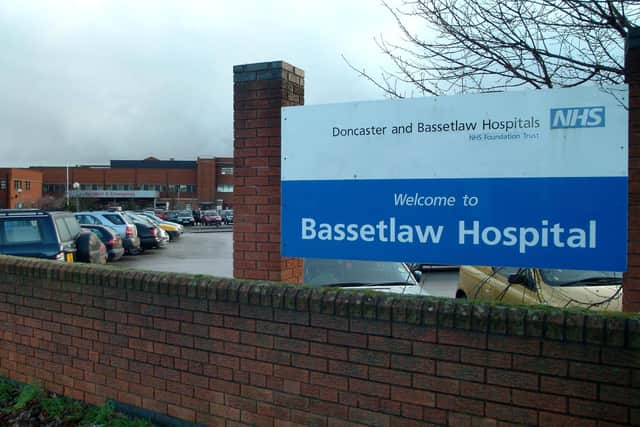Patient recovers after insulin overdose error at Doncaster hospital trust
and live on Freeview channel 276
Directors at the trust which runs Doncaster Royal Infirmary, Bassetlaw Hospital, and Mexborough Montagu Hospital, were told about the error at a board meeting last month.
It has been classed by Doncaster and Bassetlaw Teaching Hospitals as a ‘never event’, and led to changes in procedures to try to prevent any repeat.
Advertisement
Hide AdAdvertisement
Hide AdThe report stated: “A never event had been reported for February 2020 which was due to insulin being withdrawn from a pen device resulting in the patient receiving an accidental overdose of insulin.


“The patient was okay and the process for use of insulin pens had been improved, to ensure that this does not happen again.”
In one, the mistake led to a patient having surgery on the wrong eye for a patient with advanced bilateral glaucoma.
Advertisement
Hide AdAdvertisement
Hide AdLaser treatment intended for the right eye was accidentally performed in the left eye he was already blind in.


In the other case, a patient with a kidney stone and was taken to the operating theatre for a stent to allow the stone to pass.
Due to complications with the X-rays, the stent was inserted into the wrong ureter – one of the two tubes that carries urine from the kidney to the bladder.
The patient’s symptoms got better and the stent was later removed as planned.
Advertisement
Hide AdAdvertisement
Hide AdAt the time the trust said it worked closely with individuals and their families to ensure they were informed of any subsequent learning or changes in process to prevent similar incidents occurring in the future.
The NHS define ‘never events’ as “patient safety incidents that are wholly preventable where guidance or safety recommendations that provide strong systemic protective barriers are available at a national level and have been implemented by healthcare providers”.
It adds that each ‘never event’ has the potential to cause serious patient harm or death, but serious harm or death does not need to have happened as a result of a specific incident for that incident to be categorised as a ‘never event’.